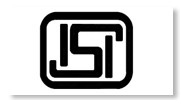Asia
-
-
Indian bis certification
CTS
One stop testing and certification service in all fields
24-hour service line: +86-139 2959 4349
Switchboard: +86-0769-2236 0704
Email: Peter@cts -cn. com
I Introduction to bis certification in India
The Bureau of Indian Standards (BIS) is the Indian standardization and certification authority. It was officially established in 1987 to replace the Indian Standards Institute established in 1946. BIS is subordinate to the Ministry of consumer affairs and public distribution. Although it is a social legal entity, it exercises government functions. Its main task is to formulate and implement national standards; Implement conformity assessment system; Issue and manage bis certification.
Based on India's national conditions, Indian certification has its own unique characteristics, with many document requirements, complex certification procedures, strong hierarchical concept and complicated procedures. Strict factory review and product sealing are required. For inexperienced service institutions, an Indian certification may take more than a year and may not be able to obtain the certificate.
2、 Scope of bis certification in India (in two batches)
The first batch (mandatory since 1986): certification field bis certification is applicable to manufacturers in any country. The certification fields mainly include: 1 Tires; 2. Household appliances such as electric iron, hot kettle, electric stove and heater; 3. cement and concrete; 4 circuit breaker; 5. Steel; 6. electric energy meter; 7. auto parts; 8. Food and milk powder; 9. Dairy products; 10. tungsten filament lamp; 11 oil pressure furnace; 12. Large transformer; 13. plug; 14. Medium and high voltage wires and cables; 15. self ballasted tungsten filament lamp.
The second batch (compulsory has been compulsory since march2013): the products with compulsory registration are electronic information technology equipment, including 1 Set top box; 2. portable computer; 3. notebook; 4. tablet computer; 5. Display with screen size of 32 inches and above; 6. Video monitor; 7. printer; 8. plotter; 9. Scanner; 10. wireless keyboard; 11. Telephone answering machine; 12. Automatic data processor; 13. microwave oven; 14. Electronic clock of electrified network power supply; 15. Electronic music system.
The third batch (compulsory compulsory from November 2014): 1 It equipment power adapter; 2. AV equipment power adapter; 3. USP uninterruptible power supply; 4. DC or AC LED module; 5. Battery of handheld device; 6. Self ballasting LED lamp; 7. fixed LED lamps; 8. mobile phone; 9. cash register; 10. selling terminal equipment; 11. Copier; 12. Smart card reader; 13. postal processor and automatic seal machine; 14. Mobile power supply.
3、 India bis certification process
(1) Application. More than 20 documents need to be submitted, including but not limited to: 1 Plant location and plant layout; 2. Supporting documents of the production plant; 3. List of existing production equipment and inspection equipment; 4. the test and inspection scheme being used or proposed to be used, together with the letter of commitment to comply with the test and inspection scheme approved by bis after the certificate is granted; 5. Letter of commitment to pay the specified marking fee from the date of awarding the certificate; 6. product drawings and internal test reports; 7. laboratory cooperation statement; 8. Information and resume of quality personnel.
(2) Record. After detailed review, if the application procedures are complete, BIS will record the application and assign an application number to the applicant, so the application is established.
(3) Initial inspection. On the date agreed by the applicant and BIS, the BIS inspection officer will carry out the initial inspection of the factory, and determine whether the products comply with Indian standards through the evaluation of the company's production capacity and control level, quality control technology, existing equipment, staff skills and sample testing. The sample test can be carried out in the factory, and also in BIS or other recognized laboratories. During the initial inspection, the BIS inspection officer will also discuss with the applicant's management on the test and inspection scheme that must be performed after the certification. The test and inspection scheme has clear provisions on the production process control that must be implemented.
(4) Issue certificates. If the initial inspection and sample test results meet the conditions, a certificate will be issued to the applicant. The certificate is valid for one year. If the execution certificate is correct, it can be extended for two years upon application. If the holder wishes to expand the scope of products covered by the same standard of the certificate, regular testing can be carried out, and those who meet the conditions can be changed. If the certificate expires, the certificate can be updated according to the implementation within the validity period of the certificate.
(5) Post certification supervision. After the certificate is granted, if the holder has fully fulfilled the test and inspection scheme, the product is consistent with Indian Standards, and the sample test records are complete, the product can be stamped with marks after authorization. Applicants need to pay a certain identification fee.
BIS will conduct regular supervision and inspection on the implementation of the certificate by the holder. This kind of supervision and inspection mainly depends on whether the test and inspection scheme is fully implemented and whether the quality control system is implemented in strict accordance with the technical standards. At the same time, test the production samples and send the samples to bis or independent laboratory for inspection.
4、 Indian bis certification cycle
The BIS certification cycle in India is quite long, depending on the product test and the smooth Factory review. Some require only twoorthree months, some require half a year, and some even more than one year. Under special circumstances, the peripheral inspection provides expedited service, which depends on the customer's requirements.
5、 India bis certification fee
The certification fee includes registration fee, product testing fee, service fee, tax, etc. it depends on your product data, model and specific information, and you need to provide the product manual for judgment.


